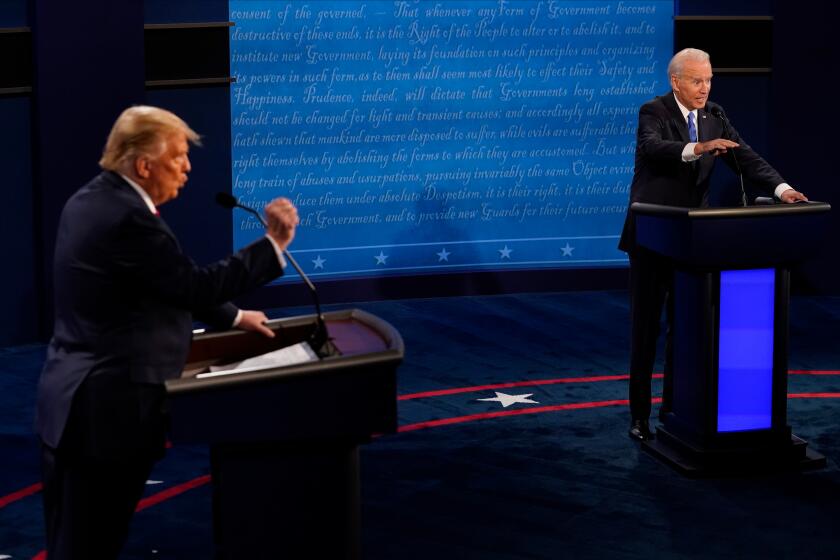Ring Up ‘No Sale’
Under pressure from weapons companies, some U.S. senators and the Defense Department, the Clinton administration is considering lifting a 19-year-old ban on sales of high-technology arms to Latin America. To change this policy would risk serious harm to the political and military stability achieved by these nations in recent years.
For instance, permitting the sale of sophisticated weaponry like F-16 fighter-bombers to Chile, which has expressed an interest in buying them, would dramatically alter the balance of power in the region and probably trigger an arms race. The chain reaction is easy to predict. Citing the risk posed by Chilean F-16s, the Argentine armed forces would immediately pressure their government to provide equivalent weaponry. The Peruvian army would want a budget increase to build a two-front capability along its borders with Chile and Ecuador. And in giant Brazil, of course, the generals could start longing for their former power.
This is not a far-fetched scenario. Ever since the ban on high-tech sales to Latin American governments was imposed by the Carter administration, powerful interests in the United States and Latin American capitals have sought to remove it.
U.S. arms manufacturers argue that lifting the current restrictions could create domestic jobs. That is true, but at what price? The issue is not job creation in America but stability in the hemisphere. Some argue that if the United States does not sell the weaponry, others will. Maybe so, but at a less provocative level since no other country manufactures a warplane as sophisticated as the F-16.
To think that the process of democratization in Latin America is now mature and able to withstand arms buildups would be a gross miscalculation. The fact that the Chilean army--still under the shadow of former dictator Augusto Pinochet--is so interested in the purchase should alone make Washington very cautious concerning a policy change.
A Washington inter-agency group representing the State, Defense and Commerce departments, the National Security Council and several intelligence agencies is reviewing the ban on high-tech sales. There is only one sensible conclusion. An arms race at that level, particularly in the important countries of the southern cone of South America, would hurt U.S. security interests and drain the meager resources of the recipients. If Washington is wise, it will spare itself and them.
More to Read
Start your day right
Sign up for Essential California for news, features and recommendations from the L.A. Times and beyond in your inbox six days a week.
You may occasionally receive promotional content from the Los Angeles Times.






